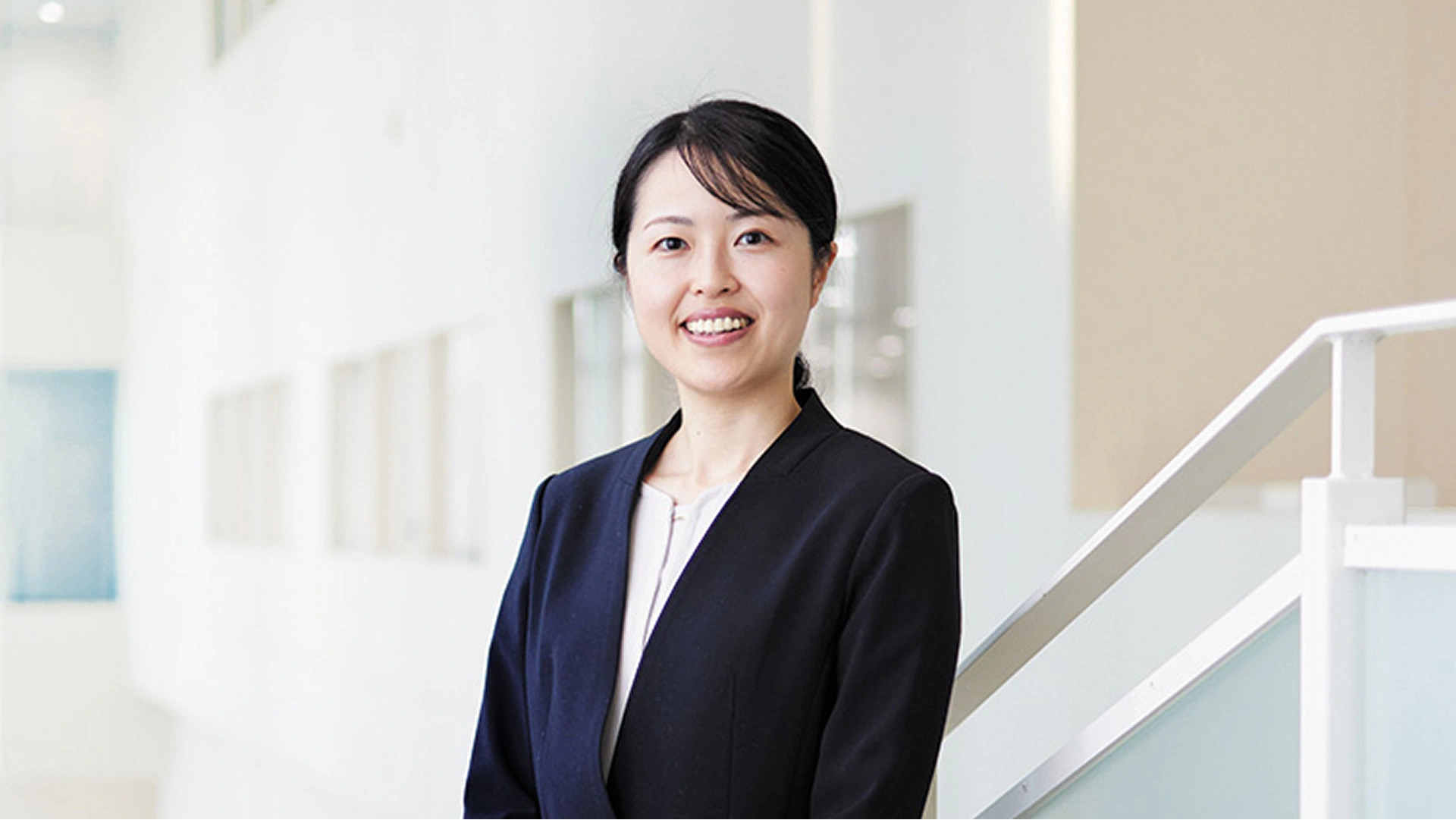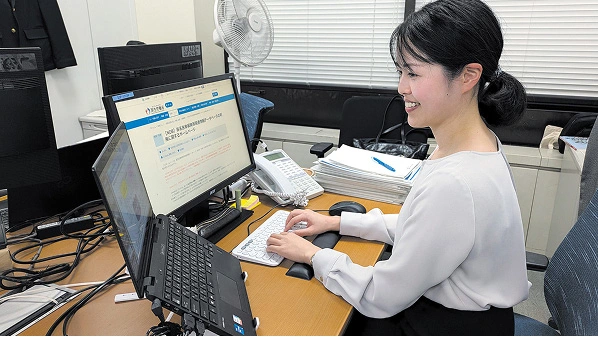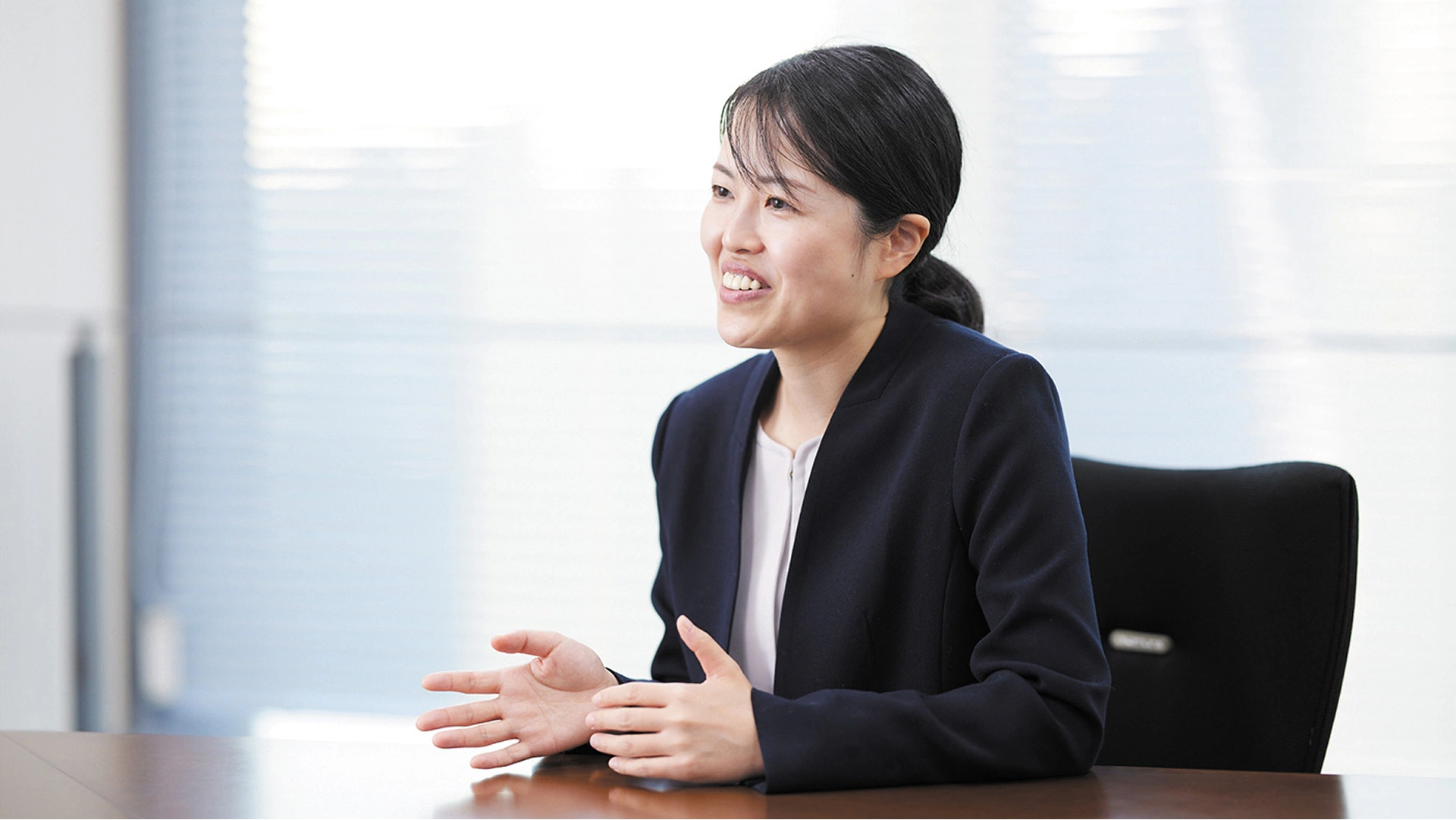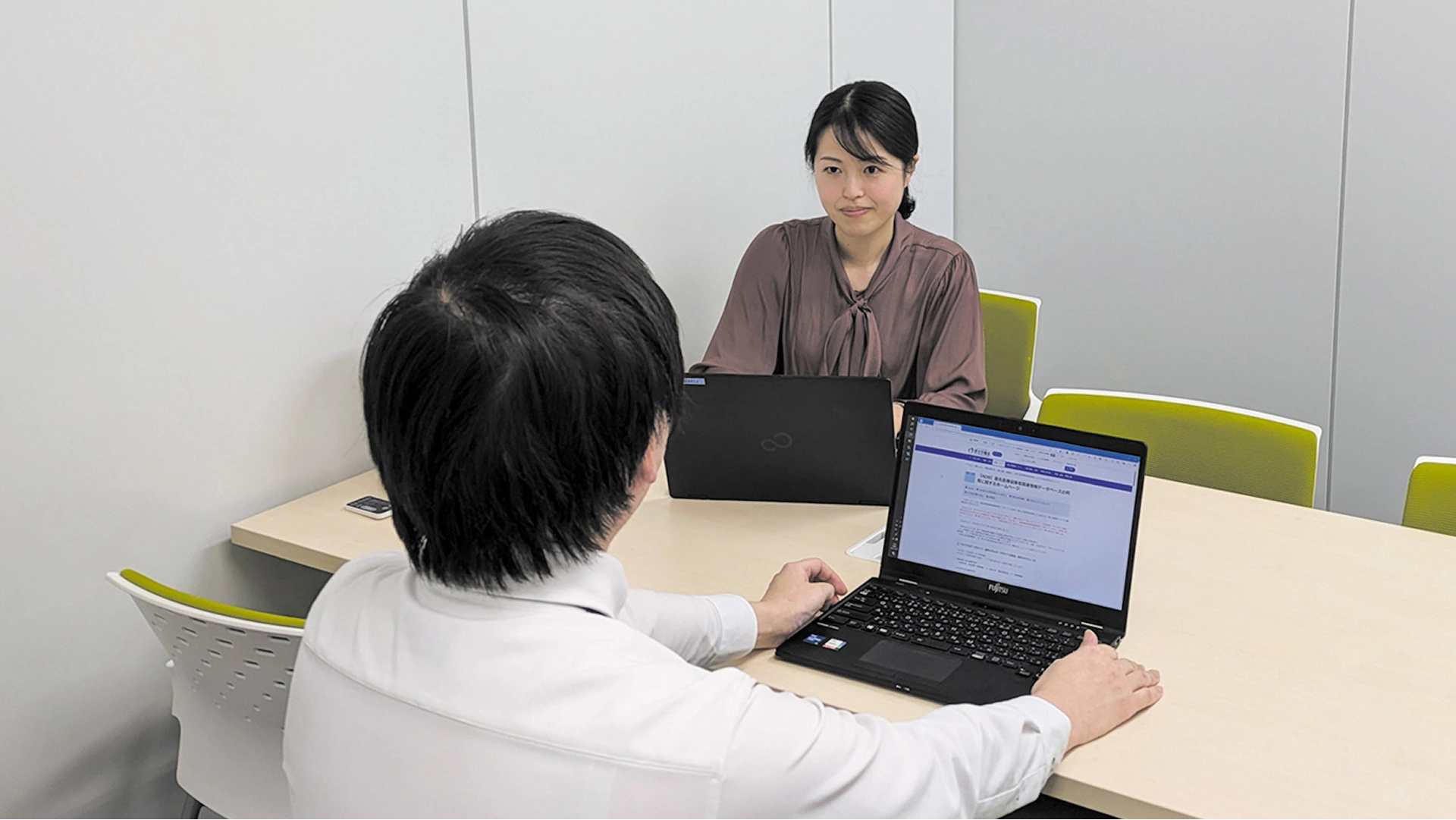Connecting healthcare and government to deal with geriatric care through big data
The future is limitless! My career
Risa Suzuki, Health Insurance Bureau, Ministry of Health, Labour and Welfare

Geriatrics helps maintain the health of the elderly and improve their quality of life in a super-aged society. As a geriatric internist, Risa Suzuki is concerned with the welfare of society as a whole. She is currently seconded to the Ministry of Health, Labour and Welfare as a medical technical officer. This is an unusual career path for a doctor, as it involves working with big data and being involved in health policy making. We asked her about the reasons behind her choice of current career path and what she finds rewarding about it.
Specializing in geriatric medicine: A training period that gave me a new perspective
Geriatrics is my specialty. It focuses on the health and medical issues of the elderly. I first encountered geriatrics when I was in my sixth year of medical school, during which I was rotating through various departments for my internship. I had decided to go into internal medicine, but I wasn't sure which specialty to choose.
One day, I attended a geriatrics conference that doctors discuss treatment plans for patients. In the case of a geriatric patient with high blood pressure and heart problems, I was about to suggest that he restrict his salt intake as a standard treatment, but the professor gave me some unexpected advice. "Restricting salt intake and making flavors weaker will reduce the patient's appetite. In addition to restricting salt intake, we should also pay attention to the amount of food they eat and consider using diuretics to make adjustments." I was amazed, and at the same time, I thought it was wonderful that the answer was given from the perspective of what is best for the patient.
A non-textbook answer may be what works best for the patient. This incident was one of the reasons why I decided to specialize in geriatric medicine. Since then, I have had many different career experiences, but even now, when I interact with patients, I still think it is most important to "see the person as they are."
Using big data to apply useful information on the very elderly for medical care
After completing six years of university and initial clinical training, I began my specialist training in geriatric medicine at a university hospital. During my clinical practice, I noticed that much of the data in papers on which clinical guidelines were based did not include individuals aged 85 and older. Data on the very elderly is often omitted as outliers. Is a patient's treatment that is determined based on data that does not include that very patient really appropriate? This question made me want to study big data, which includes data on the very elderly, so I joined a research lab specializing in health policy and informatics.
When I began my research on big data, I first learned how to handle basic databases and epidemiological statistics, and then analyzed data on the elderly. The data I was analyzing included information on medications used and tests undergone by hospitalized patients at acute care hospitals, which allowed me to analyze complications and other related factors. Working with big data allowed me to see the current state of elderly care that was not visible in papers on planned clinical research.
Looking at the relationship between healthcare and government to change policy
Ever since I decided to specialize in geriatrics, I have been aware of one problem in health care. The best course of action for each individual patient and the best course of action for society sometimes come into conflict in terms of healthcare economics.
Japan has adopted a universal health insurance system in which everyone contributes to both medical and nursing care. However, if unlimited resources were poured into individuals, costs would swell, and the social insurance system would collapse. There are inevitably some situations in which the happiness of one person does not coincide with the happiness of the collective.
Insurance premiums do pose a burden on citizens to some extent. Medical and nursing care fees are all regulated by the government, and the division between medical care and nursing care is also determined based on the government's vision. I realized that the government has a huge influence on healthcare, and I was compelled to explore the ideal form of medical and nursing care policies. This led me to consider a secondment to the Ministry of Health, Labour and Welfare.
A rewarding career as a medical officer at the Ministry of Health, Labor and Welfare from my clinical experience
I am currently engaged in health policy as a medical technical officer at the Ministry of Health, Labour and Welfare. My main job involves studying how to handle medical databases and provide them to researchers, as well as the systems that are needed for this, creating proposals for policy formulation, and coordinating with relevant parties.
When I just started working there, we were tasked with creating a system that would enable the Ministry of Health, Labour and Welfare to provide its data within seven days, compared to the approximately 390 days it previously took from the time a researcher applied to use the data. At first, I thought this was impossible, but we worked together with all the relevant parties to review the application steps for data use, the screening process, and the system, and somehow we made it happen. The process of implementing measures while discussing budgets and systems is something I was not able to do when I was a doctor.
On the other hand, there are also times when my past experience comes in handy. For example, not just anyone can be given permission to use a medical information database; it must be reviewed by a review committee, and preparations for this require judgment on the validity of research plans, etc. In this regard, because I studied databases in graduate school, I can judge to some extent whether the research plan and the application for data use are consistent. Also, because I have experience as a doctor, other medical technical officers sometimes ask me questions about clinical practice. I feel like all my past experiences are connected to the present.
Because the majority of medical school graduates become clinical doctors working in hospitals, it is tempting to think of their careers in conventional terms. But in reality, there are people on many different paths, including those who do basic research, start their own businesses, work for international organizations, or, like me, work in government. Even if you don't decide on a career path from the start, it's entirely possible that your experiences will organically connect with one another. I hope to continue to build my career flexibly, never losing sight of the core value of "seeing the person as they are."
Next step!
Aiming for a better relationship between medicine and government, I work as a doctor and a researcher
My secondment to the Ministry of Health, Labour and Welfare is temporary, so I will eventually return to the medical field. When I do, I will probably first be involved in medical treatment at a university hospital. The joy of seeing a patient's condition improve is my main motivation. In addition to providing medical treatment, I would like to focus on identifying issues in health policies and systems. Medical big data plays a major role in solving modern healthcare issues, such as rising social security costs and the uneven distribution of doctors between regions. I intend to take advantage of the exposure I gained from working in policy-making at the Ministry of Health, Labour and Welfare and engage in policy research based on the issues I encounter in clinical settings. I hope to contribute to healthcare while being mindful of the organic connection between clinical practice, research, and government.

Profile
Risa Suzuki

After graduating from the School of Medicine, Faculty of Medicine at Tokyo Medical and Dental University in 2013, she went on to graduate school while working at Tokyo Medical and Dental University Medical Hospital, and completed her doctoral studies in the Department of Health Policy and Informatics, Graduate School of Medical and Dental Sciences, at Tokyo Medical and Dental University. After working as an assistant professor in General Medicine at the hospital, she now works for the Ministry of Health, Labour and Welfare.
- 2007
- Enrolled in the School of Medicine, Faculty of Medicine, Tokyo Medical and Dental University.
- 2012
- During her clinical training in her sixth year of medical school, she became interested in geriatric medicine.
- 2013
- Graduated from the School of Medicine, Faculty of Medicine, Tokyo Medical and Dental University. After completing her initial clinical training, she worked as a geriatric internist at Tokyo Medical and Dental University Medical Hospital.
- 2017
- Decided to go to graduate school and enrolled in the Graduate School of Medical and Dental Sciences, Tokyo Medical and Dental University. She majored in health policy and informatics and learned analytical methods for medical big data while working as a clinical doctor.
- 2021
- After completing her doctoral studies, she continued to work at Tokyo Medical and Dental University Medical Hospital. Driven by her interest in the relationship between healthcare and government, she sought a secondment to the Ministry of Health, Labour and Welfare to engage in health policy.
- 2023
- Seconded to the Ministry of Health, Labour and Welfare to work as a medical technical officer. She is involved in work related to health policy, such as studying the provision of medical big data held by the Ministry of Health, Labour and Welfare.

Related articles
Interview held on November 22, 2024